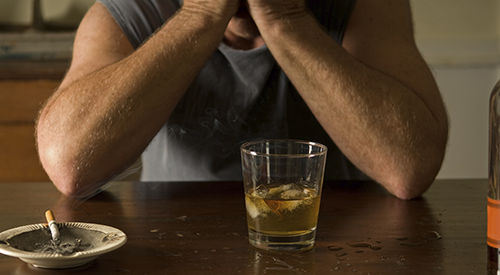The objective of this article is to help readers who may question whether chemical substances are a problem for them or not arrive at some answers.
 Summary: Often people fail to realize if they have a problem with chemical abuse or addiction.
Summary: Often people fail to realize if they have a problem with chemical abuse or addiction.
This article seeks to help readers make this determination by making some suggestions for self-examination which is often safer initially than involving another party.
The symptoms of alcohol or drug addiction are often mistaken for other emotional issues. Therefore, to make a determination as to one's own dependency or abuse, it is necessary to personally examine the use of alcohol and/or drugs in your own life.
Honestly examine whether the use of alcohol or drugs is causing problems in your life. Do the people to whom you relate bring your use to your attention?
Compare your behavior to the observations of experts. Become aware of the effects that drugs and alcohol have on your physical and psychological functioning. This means taking a look at whether your mood is depressed or your sleep disturbed. Might these problems be related to your use of drugs or alcohol.
Identify the times that you are most likely to use drugs or alcohol to observe whether you use more during times of stress which is a common sign of addiction. If the answer is "yes", develop other more productive ways to deal with stress such as daily exercise, yoga, meditation, and learning to tell others how you think and feel as well as what you would like them to do about it.
If you think that you have a problem, attempt to stop using drugs and alcohol for at least six months. People who continue to find excuses to drink and use drugs often find that they are addicted. People who find that they are able to stop their use successfully for long periods of time find that they function much better without the drugs in their systems.
It is much easier to prevent or minimize the long-term consequences of addiction if you stop the process early.
Most important, remember that addiction treatment is designed to get you out of the environment that is full of triggers for making abstinence difficult. It may be necessary to enter an in-patient program if you are unsuccessful at stopping your use of drugs or alcohol in your current living situation. Denial and shame are the two major ingredients that block people from seeking help. The reality is that only very courageous people can admit to a problem and take steps to fix it.
Ask yourself the following questions? Do you like how you feel when you drink or drug?
Do you look forward to times when you can use substances? Does the use of alcohol or drugs help you get through stressful situations or make you feel less lonely? Do chemical substances make social situations more comfortable for you? Do you have more arguments when drinking or using drugs? Do those substances make bad memories easier?
Do you use drugs or alcohol to make sexual experiences easier, to lower distress about your appearance, or to lose weight?
Do drugs and alcohol make it easier to sleep, decrease your anxiety, or make you feel smarter? Do you set limits for yourself about drinking or using drugs but fail to keep them? is your tolerance increasing? Do you notice more physical complaints such as gastrointestinal distress if your drinking has become more regular?
Answers of "yes" to four or more of the above questions suggests that you may have some problems in these areas and should consider a more formal evaluation for help.
Please remember, untreated addiction ruins lives. As alcohol and drugs become more and more a problem for individuals, they withdraw more and more until the only friend left is the bottle, the joint, or the pill.
